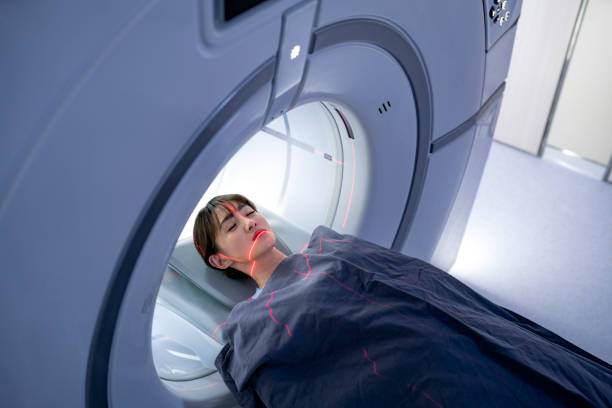Living with multiple sclerosis (MS) can be challenging, especially for women and mothers. This chronic autoimmune condition affects the central nervous system, and it is more prevalent among women in Singapore. In this article, we will explore the nature of multiple sclerosis, its symptoms, diagnosis, and available treatments.
Understanding Multiple Sclerosis
Multiple sclerosis is characterized by the body’s immune system attacking the myelin, the protective covering of nerve cells in the central nervous system. The resulting inflammation and scar tissue formation make it difficult for the brain to send signals to the rest of the body. This condition affects the brain, spinal cord, and optic nerves, leading to various neurological symptoms.
The Symptoms of Multiple Sclerosis
The symptoms of multiple sclerosis can vary from person to person and may change in severity over time. Fatigue is a common symptom, impacting almost 80% of MS sufferers. Other symptoms include numbness in the extremities, muscle weakness, spasms, loss of balance, vision problems such as optic neuritis, double vision, and involuntary eye movements, as well as speech difficulties, pain, tremors, swallowing problems, sleep disturbances, and bladder control issues.
Diagnosing Multiple Sclerosis

Image from iStock
Multiple sclerosis is commonly diagnosed in people between their 20s and 40s, but it can develop at any age. Diagnosis is a complex process involving tests like Magnetic Resonance Imaging (MRI) to detect scarring, lumbar puncture to analyze spinal fluid, blood tests, and visual evoked potentials (VEP) tests. These tests help neurologists determine the presence and extent of the disease.
Understanding the Types of Multiple Sclerosis
Medical professionals categorize multiple sclerosis into four types based on disease progression. The first is clinically isolated syndrome (CIS), characterized by the initial episode of symptoms lasting at least 24 hours. Most people with CIS will go on to develop relapsing-remitting multiple sclerosis (RRMS), the most common type, where distinct episodes of symptoms occur followed by partial or complete recovery. Secondary progressive MS (SPMS) is a progression of RRMS, where symptoms worsen over time without remissions. Primary progressive MS (PPMS) is the rarest form and involves a steady accumulation of symptoms and neurologic function decline.
Multiple Sclerosis and Women
In Singapore, multiple sclerosis affects more women than men, with four out of five patients being women. The reasons behind this gender disparity are not fully understood, but researchers believe it could be a result of the interplay between genes, hormones, and immune system differences. Hormonal fluctuations in women, such as those during the menstrual cycle and menopause, can impact the severity of MS symptoms.
Pregnancy and Menopause

Image from iStock
Contrary to common misconceptions, MS does not affect fertility in women, and pregnancy can actually lead to a decrease in the frequency of relapses. Managing MS during pregnancy may involve adjusting medications to minimize potential risks to the developing baby. Similarly, menopause requires careful management to alleviate symptoms, and early treatment along with medical monitoring can be beneficial.
Managing Multiple Sclerosis
While there is no cure for multiple sclerosis, managing the disease is an ongoing process. Treatment aims to reduce the duration and severity of relapses and includes steroids and immunomodulatory agents. Disease-modifying treatments (DMTs) can be administered through infusions, injections, or oral medications, or a combination of these methods. In addition to medication, maintaining a well-balanced diet, staying active with exercise tailored to individual capabilities, and engaging in physical therapy can help manage symptoms, improve strength, mobility, coordination, and overall well-being

Image from iStock
Creating a Support Network
Living with multiple sclerosis can be overwhelming, particularly for women and mothers. Establishing a support network consisting of family and friends can provide physical and emotional assistance during life transitions such as pregnancy, motherhood, and menopause. Having a positive attitude, staying active, and maintaining a healthy lifestyle are essential for managing the disease.
In conclusion, multiple sclerosis is a chronic autoimmune disease that affects the central nervous system, with a higher prevalence among women in Singapore. Understanding the symptoms, types, diagnosis process, and available treatments is crucial for women and mothers living with this condition. By adopting a comprehensive approach that includes medical treatments, a healthy lifestyle, and a supportive network, women with multiple sclerosis can effectively manage the disease and lead fulfilling lives.
ALSO READ:
UTI In Pregnancy: Should I Be Concerned?
Restless Nights: Unveiling the 7 Possible Causes of Sleep Problems in Pregnancy
The Silent Threat: Preeclampsia Unveiled – Causes, Symptoms, Treatments, and Prevention!
 Together Against RSV
Together Against RSV SG60
SG60 Pregnancy
Pregnancy Parenting
Parenting Child
Child Feeding & Nutrition
Feeding & Nutrition Education
Education Lifestyle
Lifestyle Events
Events Holiday Hub
Holiday Hub Aptamil
Aptamil TAP Recommends
TAP Recommends Shopping
Shopping Press Releases
Press Releases Project Sidekicks
Project Sidekicks Community
Community Advertise With Us
Advertise With Us Contact Us
Contact Us VIP
VIP Rewards
Rewards VIP Parents
VIP Parents
